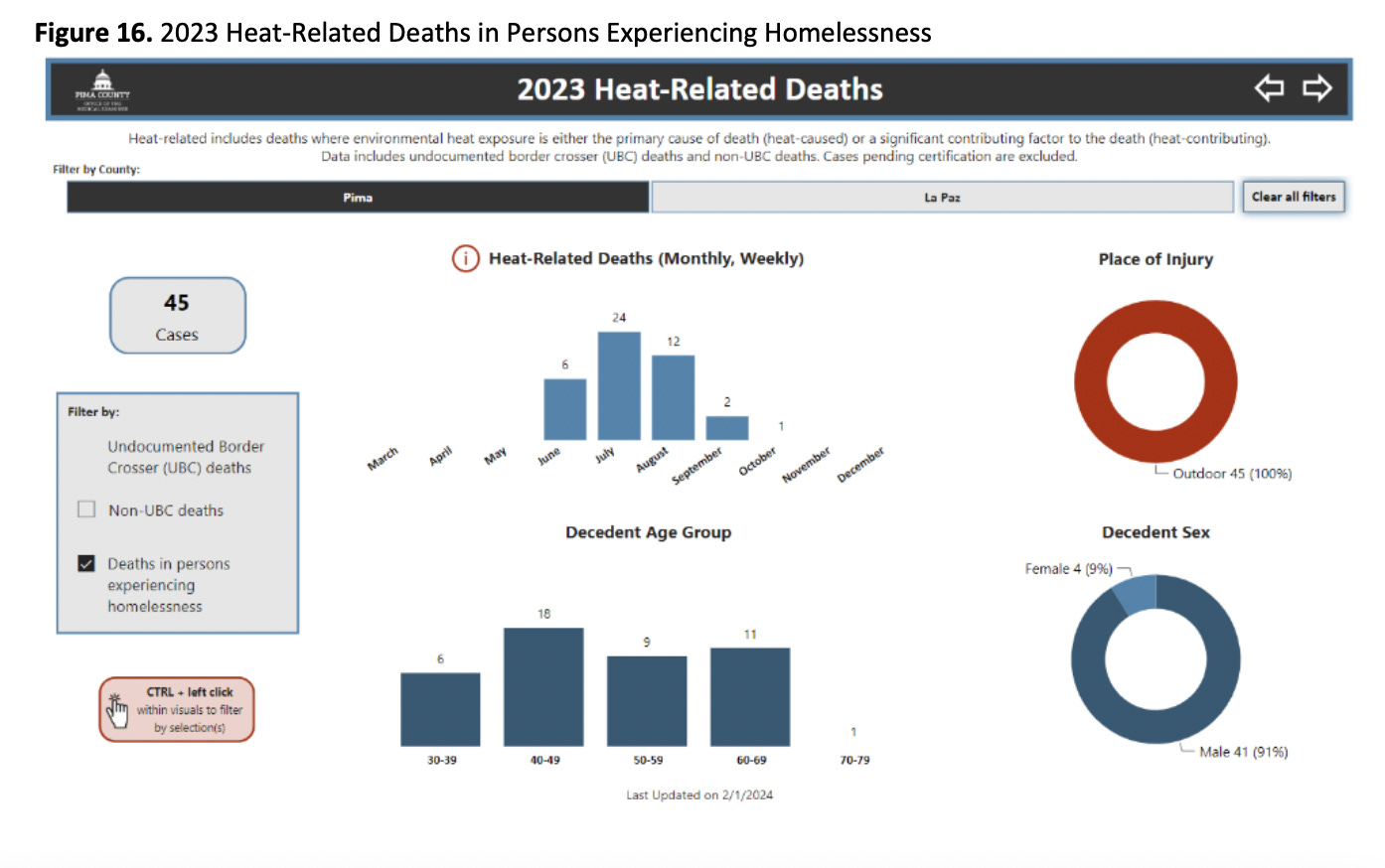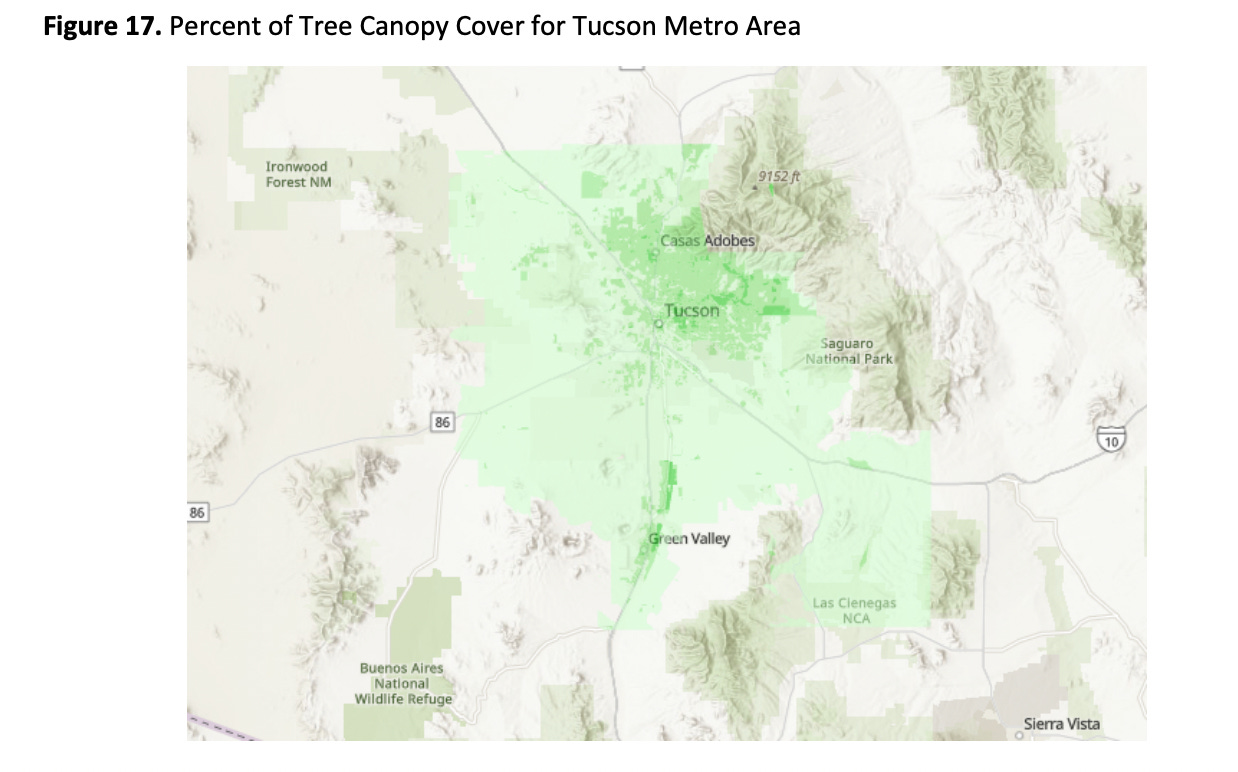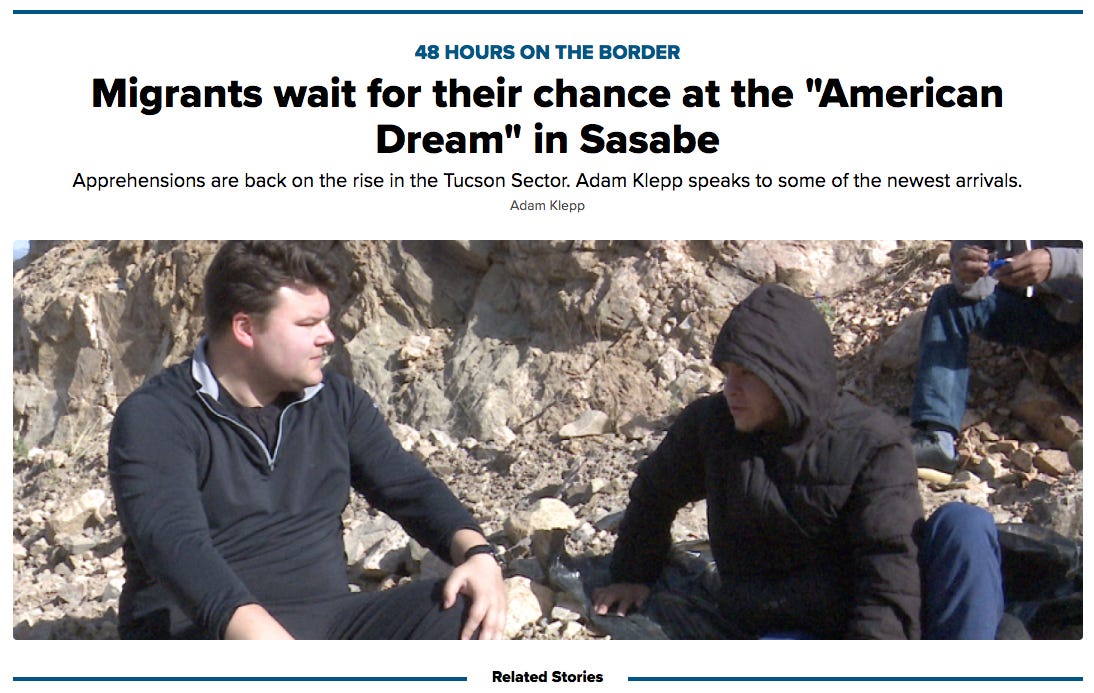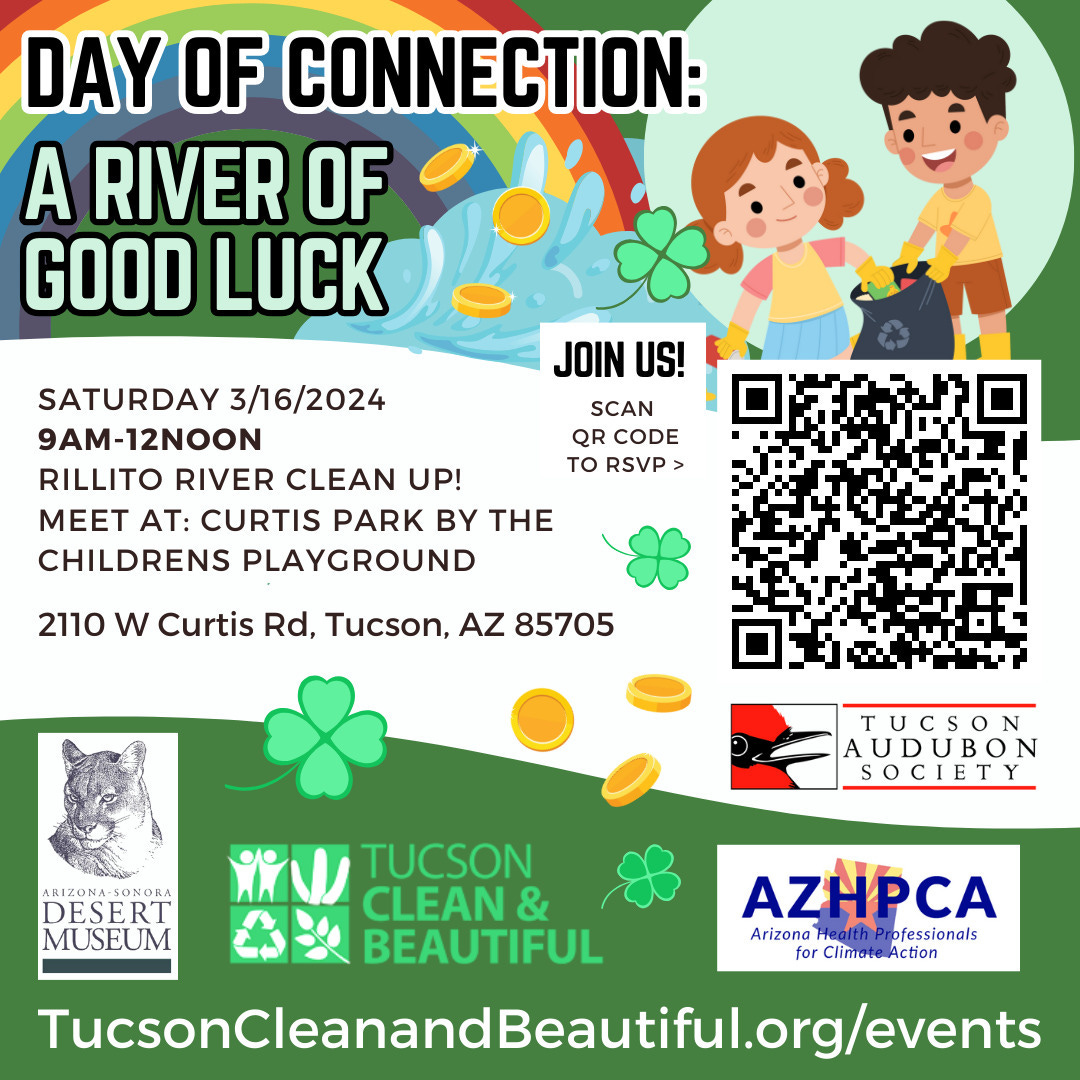The Climate Agenda: County aims high with slate of projects
Pima County has a lot of environmental problems that need attention ... They're trying to get the money to do something about it ... New faces in county races.
It’s the final day of Sunshine week, a nonpartisan collaboration that shines a light on the importance of open government and public records.
We’ve shared a lot this week about records and databases and their impact on local journalism and beyond, and we’re grateful for the laws Arizona has in place to protect our right to public information.
But these laws are far from perfect and we have little recourse as journalists if we feel like our rights to access information are being violated.
Most public agencies know that newsrooms (especially small ones like ours) lack the resources to bring in an attorney or sue for records, and it's easy for them to drag their feet in the hopes that we’ll lose interest and just go away.
The Arizona Daily Star’s Ellie Wolfe wrote yesterday that the University of Arizona is refusing to release information about the $27 million in open academic positions set to be eliminated, with the Star requesting the information four times over the past month.
We’re in a similar situation with the UA and are waiting on several requests of our own that we filed back in January. We followed up last week and were told the UA is “(continuing) to process these requests and will provide a response as promptly as circumstances permit.”
We definitely don’t have money for a lawyer in our startup budget, so unfortunately, we’re at the mercy of the university. If you’ve sent in a tip or suggestion for records or information we should look into, rest assured, we’re trying.
If you’d like to help us in our fight for this information, please send your lawyer friends our way or consider making a donation so we continue to grow our operation and ability to report on the issues that matter.
Pima County officials are getting ready to apply for $200 million to fund dozens of big environmental projects that are sorely needed, but beyond the reach of the county's tight finances.
The money will come from $4.6 billion in grants the Inflation Reduction Act set aside for local, state and tribal governments. County officials, as part of a regional partnership, would use money from the Environmental Protection Agency's Climate Pollution Reduction Grants to reduce greenhouse gas emissions, especially in low-income and disadvantaged communities that bear the brunt of excessive heat, lack of shade and flooding.
The projects county officials have their sights set on include capturing the dangerous methane gas that comes out of the landfill, expanding the city’s fleet of electric vehicles, and making government buildings more energy-efficient, among other large-scale projects.
They're also talking about using artificial intelligence in their wastewater system to optimize electrical usage, energy demand management, renewable natural gas production and chemical usage.
All those projects were chosen after a careful, collaborative eight-month long process that built on plans the county and other local governments had in the works. And they made sure disadvantaged communities, the people these grants were designed to help, had a seat at the table.
They're hoping the projects will accomplish a number of goals at the same time: improve public health, create jobs, reduce costs and address environmental injustices for the area's most vulnerable populations.
“It’s a win-win in every way,” said Pima County Department of Environmental Quality Planning Manager Natalie Shepp.
We briefly touched on one of the projects in the Climate Agenda's inaugural edition, the Los Reales Sustainability Campus' methane capture project.
Before we get into what’s going on at Los Reales, a quick lesson in garbage might be in order. Garbage doesn't just sit in a landfill. A lot of chemical processes are always at work. Decomposing solid waste generates landfill gas that contains several harmful pollutants. One of those, methane gas, is responsible for about 30% of the current rise in global temperature, according to the International Energy Agency.
So officials can't just let all that methane escape into the atmosphere. They must safely dispose of it by a process called "flaring," which burns the methane and converts it to carbon dioxide, a less harmful greenhouse gas.
The project county officials want to fund with the EPA grants would take that methane gas and put it to good use. They'd capture and process it so it could fuel City of Tucson buses and garbage trucks. That would dramatically cut down on air pollution in communities near the landfill, Shepp said.
“There’s a double benefit from this, since they’ll capture and not flare the methane and put it to good use in something that they’d have to otherwise buy,” Shepp said. “And they’ll have more than they need, so they’ll be able to give some back to Southwest Gas and recoup the costs over time.”
They already have some experience with the process. The county's Regional Wastewater Reclamation Department has seen some success with a similar process for methane, Shepp said.
The path to deciding on the projects would make the cut began last July when the Pima Department of Environmental Quality received a $1 million grant to develop a Priority Climate Action Plan, which was the first step in the application process.
Shepp and others knew they’d have better luck in securing the funding if they brought in some other municipalities that wanted to be a part of the solution, so they reached out to neighboring governments.
Officials from Tucson, South Tucson, Oro Valley, and the Tohono O'odham Nation all signed on, with the county taking the lead in mapping out a regional plan. Organizers received help gathering input from disadvantaged communities with assistance from the YWCA of Southern Arizona, Ironwood Tree Experience, Iskashitaa Refugee Network and Direct Center for Independence.
And they went even further. They sent out a survey and more than 2,000 community members responded. All of that was included in the final product, an 85-page Pima CAN! (Climate Action Now!) plan that lists 25 projects that would improve local air quality.
“The EPA is looking for what we can do in the shortest period of time with the least amount of money,” Shepp said. “I feel really good about the cost effectiveness of our projects.”
Officials submitted their plan to the EPA on March 1, complete with tons of data showing sources of air pollution, along with projects and steps that can be taken relatively quickly. And with grant applications due April 1 and funding distributed in October, the turnaround time is short (likely because the federal government wants to get the money out the door before a possible change in regime. )
Shepp thinks the county has a good chance of receiving full funding, since the grant emphasizes projects for disadvantaged communities that address social justice. She pointed to census tract data and other data sets that show there are plenty of areas in the county that lack shade, green spaces, water access, and more.
“Tucson is the poster child for environmental justice issues,” she said.
But maybe with $200 million to fix those issues, Tucson can move towards being the poster child for something we can be proud of.
The county will be providing regular updates in its Pima CAN! newsletter. Sign up here.
Ford says farewell: Pima County Treasurer Beth Ford will step down next month and she wants her chief deputy to replace her, the Tucson Sentinel’s Dylan Smith and Jim Nintzel report. If the Pima County Board of Supervisors decide to appoint her deputy, Chris Ackerley, it could boost his name recognition and give him a leg up in the election. Ackerley, a Republican like Ford, is one of three candidates who’ve filed to run for treasurer, alongside Democrats Brian Johnson and Sami Hamed.
Candidate shakeup: Some new faces joined the races for county offices this month, county records show. Republican Dominic A. Campbell-Gonzalez filed a statement of interest to run against County Recorder Gabriella Cázares-Kelly, a Democrat who was running unopposed. Constable Bennett Bernal also has his first challenger, Ivan Ricardo Tolano, in Justice Precinct 6. Both are Democrats. And incumbent Constable Daniel Rowland, a Republican, is now running for re-election in Justice Precinct 1 against Democrat Mark Roosevelt. Over in the race for superintendent of schools, Marana Unified School District Governing Board member Dr. Maribel Lopez withdrew from the race, leaving incumbent Dustin Williams as the sole candidate for the office.
Robbins takes a pay cut: University of Arizona President Robert C. Robbins took a 10% pay cut at a meeting of the Arizona Board of Regents on Thursday, the Arizona Daily Star’s Ellie Wolfe reports. Robbins requested the pay cut earlier this month as a way to help with the UA’s financial crisis. His salary was reduced from $816,000 to $734,000 and he gave up at-risk compensation that would’ve been worth up to $270,000. The regents also elected a new chair, Cecilia Mata, to replace Fred DuVal, who stepped down from being chair last month, shortly after Gov. Katie Hobbs said she was looking into whether she had the authority to remove regents from their positions.
Not your average news story: KGUN reporters collaborated with ABC15 and Scripps News on an ambitious project to show what life is like on the Arizona-Mexico border. Their “48 hours on the border” series includes interviews with migrants on hilltops waiting to be picked up by the Border Patrol, an analysis of cross-border industries that bring fruits, vegetables, and electronics to the United States, and much, much more.
Jail dispute isn’t over: Sheriff Chris Nanos is still pushing to get a new jail, despite indications from the Pima County Board of Supervisors that they are looking at less costly alternatives than spending $850 million to replace the jail, KGUN’s Kenny Darr reports.
"I don’t know if you can ever remodel this one. It is in such disrepair. They can say all they want, it’s not in crisis," Nanos said. "I can show you video today, just today, of water spraying everyone and it’s not raining. It’s a mess and they know it's a mess."
Rising in the ranks: The new state elections director is a survivor of the 2022 elections debacle in Cochise County, KJZZ’s Camryn Sanchez reports. Secretary of State Adrian Fontes recently promoted Lisa Marra from her position as deputy director. Marra resigned as elections director in Cochise County last year, after two county supervisors (who both were later indicted) tried to get her to conduct a full hand-count of the ballots. Marra insisted it was illegal and a judge later agreed. She went on to get a $130,000 settlement after she said it was a hostile work environment.
Help Amphi become stinknet-free
Join the Arizona-Sonora Desert Museum tomorrow from 8:30 to 11:30 a.m. in helping to remove stinknet from the Amphi neighborhood. Stinknet is a recently introduced, invasive plant that crowds out other plants and can help fuel wildfires. A large infestation was discovered in the Amphi neighborhood last year and has spread into parts of the surrounding residential area. Learn how to identify and remove stinknet and help join forces to help protect our community’s biodiversity. Volunteers will meet at Pima Federal Credit Union (3730 N Stone Ave.) and should bring drinking water, a 5-gallon bucket (if you have one) and a face mask. Find more information and register here.
Rillito River goes green
Tucson Clean and Beautiful, Watershed Management Group and A Better Rillito are hosting a Rillito River restoration and clean up event tomorrow from 9 a.m. to noon at Curtis Park’s Children’s Playground (2110 W. Curtis Rd.) Volunteers will celebrate St. Patrick’s Day Weekend and learn about invasive species and how removing them from the Rillito basin helps protect Saguaros and other native life. Children under 18 years old must attend with an adult. Volunteers should bring a water bottle and extra water, hat, sunglasses, sunscreen and wear long pants, long sleeves and closed-toed shoes. Organizers will provide trash grabbers and bags, gloves, shovels and tools. Visit the website for more information and to sign up.
Saturday Service Day at Tucson Village Farm
There are a few spots left for tomorrow’s Saturday Service Day at Tucson Village Farm. Join other volunteers at the “Big Farm” (2201 E. Roger Rd.) to help plant spring crops, prepare garden beds for planting and weed the farm’s growing spaces. Participants should bring a water bottle and wear closed-toed shoes and a hat. Learn more and sign up here.
Explore Tucson’s pedestrian network
Join the Watershed Management Group (1137 N. Dodge Blvd.) in an exploration in foot travel in the Old Pueblo on Wednesday, March 20 from 5:30 to 7 p.m. Attendees will learn about how pedestrian and bike infrastructure plays a role in sustainable mobility and a healthy watershed and will examine Tucson’s network of footpaths and walking opportunities. Instructors will help participants learn how to navigate activity heatmaps, trail apps and more and help them to discover walkable corridors and connectors around town. All attendees will receive a “Cool Tucson 5 Degrees” sticker and attendees who walk, bus, bike or carpool will be entered into a raffle. Visit the event page for more information and to register to attend.
Revitalize South Tucson’s Greenway
Tucson Clean and Beautiful is partnering with the City of South Tucson, Pima County, the University of Arizona and others to build the El Paso Greenway (132 W. 35th St.) on Saturday, March 23 from 9 to 11 a.m. The greenway is a “little green gem” that brings together the surrounding community. Volunteers will help plant trees and remove debris and invasive species along the greenway while helping South Tucson in promoting a safe greenway for bikes and pedestrians. Register for the event and learn more here.
Weedwackers take on Tucson Mountain Park
Join the Sonoran Desert Weedwackers for a morning of weed removal in Tucson Mountain Park on Wednesday, March 27 from 7 to 11 a.m. Volunteers should come prepared to hike off trail to reach the work area. Hosts will provide snacks and drinks. Details on the specific meeting location within the park will be sent out a few days before. Volunteers should bring water (two liters,) snacks, a backpack and sunscreen and wear sturdy shoes, long pants, a hat and long sleeves. Attendees will be provided with lightweight digging bars, rock picks and work gloves. Learn more and register here.
Upcoming meetings
Commission on Climate, Energy and Sustainability - Today at 5 p.m.
Tucson-Pima County Bicycle Advisory Committee- Wednesday, March 20 at 6 p.m.
Complete Streets Coordinating Council - Wednesday, March 27 at 5:30 p.m.
We have a running story list for future editions of the Climate Agenda, but we’d love to hear your ideas. Send those to caitlin@tucsonagenda.com.











